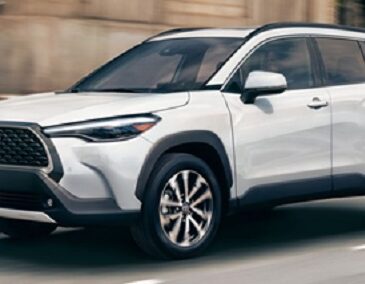
Denver, the Mile-High City, is not only known for its stunning mountain vistas but also for its high-altitude terrain. While this altitude provides breathtaking off-roading opportunities, it can also present unique challenges for Jeep owners. The thinner air, lower oxygen levels, and fluctuating weather conditions can affect your Jeep’s performance and longevity. In this blog post, we’ll delve into how the high-altitude environment in Denver can affect your Jeep and important tips for maintenance for your Jeep in Denver to keep your Jeep running smoothly.
Understanding High-Altitude Challenges
Before we dive into maintenance tips, let’s understand why high-altitude environments like Denver can affect your Jeep:
Thinner Air: At higher altitudes, the air is thinner, which means there is less oxygen available for combustion in your engine. This can lead to reduced engine power and fuel efficiency.
Temperature Variations: Denver’s weather can be unpredictable, with temperature swings from hot to cold. These fluctuations can stress various vehicle components, such as engine coolant and oil.
Pressure Changes: As you drive up and down steep mountain roads, the pressure inside your tires can fluctuate. Maintaining proper tire pressure is crucial for both safety and performance.
Now, let’s explore some maintenance tips to ensure your Jeep runs smoothly in Denver’s high-altitude environment.
1. Air Intake and Fuel Systems
To compensate for the reduced oxygen levels at high altitudes, your engine may require more air and fuel. Here’s what you can do:
- Check and clean the air filter regularly: A clogged air filter restricts airflow, reducing engine efficiency. In high-altitude areas, this can be even more detrimental.
- Use high-octane fuel: Higher-octane fuel can improve combustion efficiency, especially in thinner air.
2. Oxygen Sensors and Fuel Injection
Your Jeep’s oxygen sensors and fuel injection system play a critical role in optimizing air-fuel mixture. Here’s how to maintain them:
- Inspect and replace oxygen sensors as needed: Faulty sensors can cause your engine to run rich or lean, impacting performance and fuel efficiency.
- Clean fuel injectors: Dirty fuel injectors can disrupt the fuel spray pattern, affecting combustion. Consider using a fuel injector cleaner periodically.
3. Engine Cooling System
Denver’s fluctuating temperatures can put additional stress on your engine’s cooling system. Ensure it’s in top shape by:
- Check coolant levels: Regularly inspect and top up your coolant to prevent overheating.
- Inspect hoses and radiator: Look for signs of wear, leaks, or corrosion in the cooling system components.
4. Tire Maintenance
Tire pressure is crucial, especially when driving in high-altitude areas with varying terrain. Here’s what to do:
- Check tire pressure before every trip: Use a reliable pressure gauge and adjust it to the manufacturer’s specifications.
- Consider all-terrain or mud-terrain tires: These tire types provide better traction on rocky, uneven mountain trails.
5. Brakes
Mountain roads can be steep and winding, making your brakes work harder. Keep them in top condition:
- Regularly inspect brake pads and rotors: Replace them when they show signs of wear to maintain optimal stopping power.
- Brake fluid: Check the brake fluid level and quality. Brake fluid absorbs moisture over time, which can lead to decreased braking performance.
6. Suspension and Steering
High-altitude terrain can be rugged, so your suspension and steering components should be in good condition:
- Check for loose or worn suspension parts: Inspect ball joints, control arms, and bushings for wear and tear.
- Steering alignment: Proper alignment ensures your Jeep handles well and prevents uneven tire wear.
7. Battery
Cold temperatures and reduced oxygen levels can strain your Jeep’s battery. Take these steps to ensure reliability:
- Check battery connections: Make sure they are clean and secure.
- Test the battery: If your battery is several years old, have it tested to ensure it can handle cold starts at high altitudes.
8. Emergency Kit
When driving in high-altitude areas, especially in remote locations, it’s essential to be prepared for emergencies:
- Carry a basic emergency kit: Include items like a first aid kit, flashlight, extra clothing, and non-perishable food.
- Communication: Ensure you have a reliable means of communication, such as a satellite phone or a two-way radio.
Conclusion
High-altitude Jeeping in Denver can be an exhilarating adventure, but it requires some extra attention to vehicle maintenance. The thinner air, temperature variations, and rugged terrain can all impact your Jeep’s performance and longevity. By following these maintenance tips and opting for professional Jeep maintenance in Denver, you’ll not only keep your Jeep running smoothly but also enhance your safety and enjoyment while exploring the breathtaking trails and landscapes that Denver’s high-altitude environment has to offer. Happy Jeeping!



